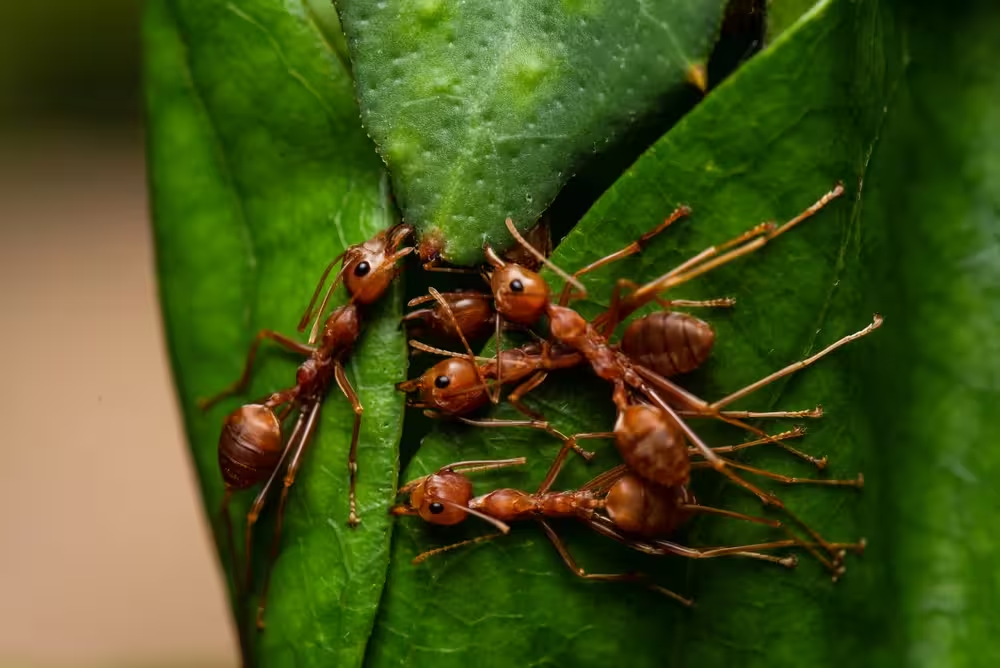
Entomology Circulars
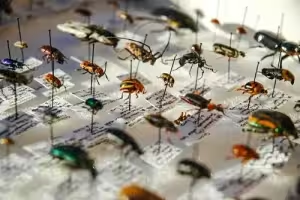
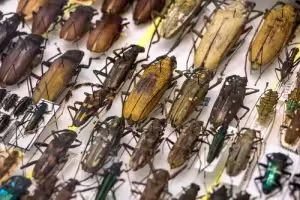
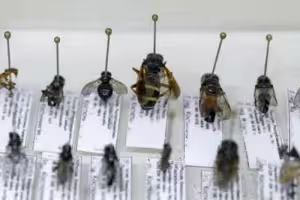
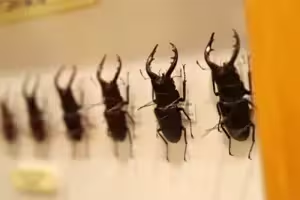
The Entomology Circular series was established in the early 1960s to be an educational outlet for new agricultural pests, often of regulatory concern. They are primarily created by staff members to discuss newly established pests or pests that would pose threats to Florida’s plant life if established. These Circulars were short reports (often only 2 page) that were printed for distribution to stakeholders and the public. After the original release, the paper copies were used as educational fliers for many years. While some data are out of date, they are historically significant and much of the biological information contained in them are still scientifically valid. With the development of the internet, many were updated and re-released through the University of Florida’s Featured Creatures series. As the internet and digital technology created new ways to disseminate information more rapidly, the Circular series’ original purpose of a quick information release was taken over with DPI’s Pest Alert series that is posted on the DPI’s webpage. However, Pest Alerts are considered short, temporary multi-media postings to be discarded after a period of time. The Circular series continues to function as a more informative and permanent publication record on various pests or arthropods of concern to Florida.
-
Issue No. 445 – An initial list of arthropods on hemp (Cannabis sativa L.; Cannabaceae) in Florida
Eileen A. Buss, Ph.D. and Paul E. Skelley, Ph.D. | November, 2023
Hemp (Cannabis sativa L., Rosales: Cannabaceae) is an upright, annual herb that originated in Europe, India and China (McPartland 2017). It can grow throughout the world in temperate and tropical climates (Dodge 1898). …read more…
-
Issue No. 444 – Matsucoccus alabamae Morrison, Alabama pine scale
(Matsucoccidae: Coccomorpha: Hemiptera)
A potential pest of Florida pines | Muhammad Z. Ahmed, Ph.D. and Douglass R. Miller, Ph.D., Bureau of Entomology, Nematology and Plant Pathology | April, 2020
Matsucoccus alabamae Morrison was first described from a pine species in Alabama, in 1902 (Morrison 1939). To date, there is no published record of its occurrence outside of Alabama. Pine trees play a vital role in Florida’s ecosystems and economy (Proctor and Monroe 2016). …read more…
-
Issue No. 443 – Chionaspis pinifoliae (Fitch)
(Diaspididae: Coccomorpha: Hemiptera)
Pine needle scale, a potential pest of Florida pines and the Christmas tree industry, but not established in Florida | Muhammad Z. Ahmed, Ph.D., Douglass Miller, Ph.D. | December, 2019
Chionaspis pinifoliae (Fitch), pine needle scale, is a common pest of conifers, especially in urban environments and Christmas tree farms. This insect is considered one of the most serious pests of ornamental pines in the U.S., …read more…
-
Issue No. 442 – Phenacoccus sisymbriifolium Granara de Willink
(Pseudococcidae: Coccomorpha: Hemiptera)
A new U.S. continental record in Florida and potential pest | Muhammad Z. Ahmed, Ph.D., Douglass Miller, Ph.D.; Bureau of Entomology, Nematology and Plant Pathology | November, 2019
According to the FDACS-DPI database and ScaleNet (García et al., 2016), there are about 34 genera and 90 species of mealybugs in Florida. More than one third of them occur on roots and are easily overlooked during inspection. …read more…
-
Issue No. 441 – Thysanofiorinia leei (Diaspididae: Coccomorpha: Hemiptera) lychee leei scale
A new U.S. continental record in Florida and potential pest of Florida lychee
Muhammad Z. Ahmed, Ph.D., Douglass Miller, Ph.D.; Bureau of Entomology, Nematology and Plant Pathology | August, 2019
Samples of Thysanofiornia leei Williams were submitted by Shannan Webb (FDACS-DPI) on February 28 and April 16, 2019 from Broward County (E2019-1545, E2019-1961). These were identified as a new U.S. continental record and confirmed by Dr. …read more…
-
Issue No. 440 – Syngamia florella (Stoll), the orange-spotted flower moth
(Lepidoptera: Crambidae: Spilomelinae)
James E. Hayden | Bureau of Entomology, Nematology and Plant Pathology | April, 2019
Syngamia florella (Stoll) is a common moth native to Florida and the Southeastern United States. Specimens are frequently submitted as regulatory samples, probably because of the attractive wing pattern. The Florida Department of Agriculture and Consumer Services, Division of Plant Industry (FDACS-DPI) received 134 samples of adult moths between the years 2007–2018, only two of which were reared; most are… …read more…
-
Issue No. 439 – Phantasma Scale Field Detection and Potential Host Plants of Fiorinia phantasma Cockerell & Robinson
(Diaspididae: Hemiptera)
Phantasma Scale, Potential Pest of Palms and Ornamental Plants in Florida | Muhammad Z. Ahmed; Bureau of Entomology, Nematology and Plant Pathology | December, 2018
Fiorinia phantasma Cockerell & Robinson (Diaspididae: Hemiptera), phantasma scale, is a significant pest of nursery plants, particularly of ornamental palms. The scale has been transported to new localities by movement of live nursery stock (Ahmed and Miller 2018). …read more…
-
Issue No. 438 – First Florida State Record of Chrysomphalus bifasciculatus Ferris
(Diaspididae: Coccidomorpha: Hemiptera)
False Florida Red Scale, Potential Pest of Ornamentals and Citrus | Muhammad Z. Ahmed and Doug Miller | July, 2018
Chrysomphalus bifasciculatus Ferris (Hemiptera: Diaspididae), false Florida red scale, was first found in California in 1938 (Ferris 1938). Since then, it is known in 12 U.S. states (Alabama, California, Delaware, Georgia, Louisiana, Maryland, New Jersey, North Carolina, Oklahoma, South Carolina, Texas and Virginia), two of which border Florida. …read more…
-
Issue No. 437 – First continental record of Melanaspis leivasi Costa Lima
(Hemiptera: Diaspididae)
a Leivasi armored scale (Suggested Common Name) | Muhammad Z. Ahmed and Doug Miller | December, 2017
Melanaspis leivasi Costa Lima (Hemiptera: Diaspididae) is known from Brazil, Colombia, Guatemala, Mexico and Panama (Lepage and Giannotti 1943; Deitz and Davidson 1986), and is not known to occur in the United States. …read more…
-
Issue No. 436 – Eucalyptus gall wasp, Leptocybe invasa Fisher & La Salle
(Insecta: Hymenoptera: Eulophidae)
An emerging pest of eucalyptus in Florida | Muhammad Z. Ahmed, Yisell V. Hernandez, Paul Skelley, Eric Rohrig, Cindy McKenzie, Lance S. Osborne, and Catharine Mannion | December, 2017
Eucalyptus is used both as an ornamental and commercial tree. Its plantations are a major source of timber, firewood and mulch, and create areas for honeybee foraging. It is used in recreational areas, as shelterbelts from drifting sands, and as wind breaks surrounding cultivated and residential areas all over the world, including Florida. …read more…